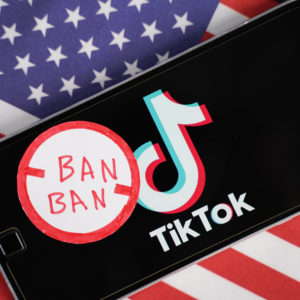PA Dems Want to Ban TikTok — After They Post One More ‘Lip Syncing Cat’ Video

As the Pennsylvania General Assembly considers a blanket ban on TikTok for government-owned devices, many of the Democratic legislators who support the bill are still sharing Zach King magic tricks and giggling baby videos on the popular platform.
Eleven Pennsylvania Senate Democrats maintain a presence on the app owned by ByteDance, a Chinese-based company with ties to the Chinese Communist Party.
Some Democrats, including Montgomery’s Sen. Katie Muth, have accounts without any content. Others cross-post videos from Instagram or Facebook to TikTok.
Then there’s Delaware Valley Democratic Sens. Carolyn Comitta and John Kane.
Both Chester Democrats maintain a heavy presence on TikTok. Comitta has both campaign and Senate TikTok accounts. Both have posted videos from inside their Capitol offices. There’s even a goofy video of Kane walking away from policy positions that he opposes while a comedy sketch criticizing a so-called toxic person plays in the background.
A Kane spokesperson told DVJournal the senator turned to TikTok to connect with younger voters.
“This effort has been enjoyable, exciting, and empowering for many young people who now feel acknowledged by their government and informed about current events,” said Drew Henderson. He promised Kane didn’t use a government-owned device for TikTok. “With numerous colleges and universities in Sen. Kane’s district, we have found TikTok valuable to connect with young constituents, meeting them where they are digitally.”
Despite using the app for messaging, the entire Democrat Senate Caucus voted for Senate Bill 379, the TikTok ban bill. TikTok users are banned from accessing the app from a state-owned wireless network.
The House version of SB 379 went further. It expanded the TikTok ban to include devices and wireless networks owned by local governments and school districts.
“I believe the House amendments make SB 379 stronger by expanding the bill’s scope to include other foreign adversaries hostile to the United States, such as Russia,” Sen. Tracy Pennycuick (R-Montgomery) told DVJournal. She was one of the primary co-sponsors of the original bill. “Apps, like TikTok, present serious security risks, especially when installed on state-owned devices that have direct access to sensitive information. I am optimistic that this bill will pass in the House.”
The bill sits in the House Appropriations Committee.
It received initial support last week in a bipartisan 139-62 vote. Among supporters were 11 Democrats with active TikTok accounts. That includes Appropriations Chair Rep. Jordan Harris of Philadelphia and Delaware County Rep. Jenn O’Mara.
You could say the state legislature was behind with the times on TikTok. Multiple state agencies banned the app years ago.
State Treasurer Stacy Garrity booted TikTok from her department’s devices in late 2022 following an internal review.
“Our ban has been fully effective,” she told DVJournal. “No employees are able to download TikTok onto Treasury devices, and no devices on the Treasury network can access TikTok.”
Other departments with a TikTok ban are state courts, the attorney general’s office, and the auditor general’s office.
And, despite Gov. Josh Shapiro having two active TikTok accounts where he boasts about his “three moods,” state agencies can’t create TikTok accounts or buy ad space on the app.
Shapiro’s office did not respond to a request for comment on SB 379.
Should the bill become law, it would cause ripples throughout the Delaware Valley region. Bucks County uses TikTok to communicate with the public. Delaware County officials said last year that TikTok was still allowed on government-owned phones. Chester County has a ban on TikTok from government phones due to cybersecurity concerns. Montgomery County officials didn’t comment on the county’s TikTok policy.
Pennsylvania’s two Democrat U.S. Sens. Bob Casey and John Fetterman are both active on the platform as is President Joe Biden. Other federal employees can’t use TikTok on their work phones.
A bill that calls for ByteDance to sell TikTok or face a ban in America passed the U.S. House this month.
Please follow DVJournal on social media: Twitter@DVJournal or Facebook.com/DelawareValleyJournal



